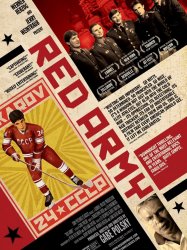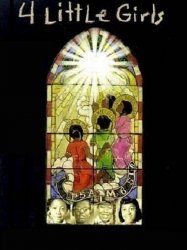Heist: Who Stole the American Dream? is a american film of genre Documentary released in USA on 2 march 2012
Heist: Who Stole the American Dream? (2012)

If you like this film, let us know!
Heist: Who Stole the American Dream? is a 2011 documentary film, which argues that government deregulation led to the Great Recession. It was directed and produced by Donald Goldmacher and journalist Frances Causey and narrated by Thom Hartmann. The documentary is partially based on Jeff Faux's 2006 book The Global Class War. The film traces the roots of the Great Recession to Virginia lawyer Lewis F. Powell, Jr., whose 1971 memo to the United States Chamber of Commerce urged corporate America to become more aggressive in molding politics and law.
Filmmakers Goldmacher and Causey started work on Heist in 2006 after they had been investigating the exploitation of undocumented workers near the Arizona border.
Heist explores the premise that Roosevelt's New Deal is being dismantled piecewise. It documents the aggressive push for free trade agreements such as the North American Free Trade Agreement as well as the deregulation of financial products as evidenced by the repeal of the Glass–Steagall Act and the passage of the Commodity Futures Modernization Act of 2000. Heist lays the blame for the crisis on the cozy relationship between politicians and corporations, citing the Reagan administration as well as the actions of Presidents Clinton and Obama. The documentary ends with suggestions for how people might organize, including tactics employed by Occupy Wall Street.
Heist includes interviews and commentary from Senator Bernie Sanders, Representative Donna Edwards, former American Airlines president Robert Crandall, Media Matters for America founder David Brock, Nomi Prins, Van Jones, Robert Kuttner, and journalist David Cay Johnston. The documentary premiered at the Mill Valley Film Festival on October 13, 2011.
^ Karlin, Mark (February 29, 2012). "Who Stole the American Dream in Broad Daylight?". Truthout.
^ Holden, Stephen (March 1, 2012). "Tracing the Great Recession to a Memo 40 Years Ago". The New York Times.
^ Garcia, Amanda (January 26, 2012). "Heist: Who Stole the American Dream? An Interview with Co-Director/Co-Producer Frances Causey". The Santa Barbara Independent.
^ Harvey, Dennis (October 20, 2011). "Heist: Who Stole the American Dream? And How We Can Get It Back". Variety Reviews.
^ Milazzo, Linda (November 3, 2011). "A Movie For The Movement: "Heist: Who Stole The American Dream?"". AlterNet.
^ Mikulan, Steven (April 17, 2012). ""Heist" Chronicles Theft of American Dream". The Frying Pan.
^ Karman, Mal (September 30, 2011). "Feature: Thirty-fourth time's a charm for the Mill Valley Film Festival...". PacificSun.
Comments
Leave comment :
Suggestions of similar film to Heist: Who Stole the American Dream?
There are 13540 with the same cinematographic genres (including 576 with exactly the same 2 genres than Heist: Who Stole the American Dream?), 8199 films with the same themes (including 515 films with the same 3 themes than Heist: Who Stole the American Dream?), to have finally 70 suggestions of similar films.If you liked Heist: Who Stole the American Dream?, you will probably like those similar films :

Zeitgeist (2007)
, 2h2Directed by Peter Joseph
Origin USA
Genres War, Documentary, Historical
Themes Films based on the September 11 attacks, La mondialisation, Films about religion, Films about terrorism, Transport films, Aviation films, Documentaire sur l'altermondialisme, Documentary films about law, Documentary films about war, Documentary films about historical events, Documentary films about politics, Documentary films about religion, Documentary films about technology, Documentary films about terrorism, Political films, Films based on the Bible, Films about Islam, Dans un avion, Portrayals of Jesus in film, Films about hijackings
Actors George Carlin
Rating80%





The film starts with animated visualizations, film segments and stock footage, a cartoon and audio quotes about spirituality by Chögyam Trungpa Rinpoche, then shots of war, explosions, and the September 11 attacks. Then the film's title screen is given. The introduction ends with a portion of a George Carlin monologue on religion accompanied by an animated cartoon. The rest of the film is in three parts with narration by Peter Joseph.

The Coronation of Edward VII (1902)
, 3minutesDirected by Georges Méliès, Charles Urban
Origin France
Genres Documentary, Historical
Themes Documentary films about historical events, Documentaire sur une personnalité, Documentary films about politics, Political films, Films about royalty
Rating51%






The Rape of Europa (2006)
, 1h57Origin USA
Genres War, Documentary, Historical
Themes Documentary films about the visual arts, Documentary films about war, Documentary films about historical events, Documentary films about politics, Political films, Documentary films about World War II
Actors Joan Allen
Rating76%






Sacco and Vanzetti (2006)
, 1h20Genres Documentary, Historical
Themes Prison films, Documentary films about historical events, Documentary films about politics, Documentary films about anarchism, Political films, Films about capital punishment
Actors Henry Fonda, Giuliano Montaldo, Tony Shalhoub, John Turturro, Studs Terkel
Rating69%





 , 1h15
, 1h15Directed by William Klein
Origin France
Genres Documentary, Historical
Themes Documentary films about historical events, Documentary films about politics, Political films
Rating64%





Dans ce film documentaire, le militant des Black Panthers Eldridge Cleaver s’exprime depuis son exil en Algérie, exil provoqué par une accusation de tentative de meurtre en Californie. Le très didactique Eldridge parle ouvertement de la révolution aux États-Unis et établit une liste de ses plus grands rivaux politiques. Les noms de Nixon, Agnew, McClelland apparaissent au même niveau que ceux de Ronald Reagan et Richard Daley. Tous sont considérés comme des cibles pour de nombreux groupes révolutionnaires aux États-Unis.

Genres Documentary, Historical
Themes Films based on the September 11 attacks, Films about religion, Films about terrorism, Transport films, Aviation films, Documentary films about law, Documentary films about war, Documentary films about historical events, Documentary films about politics, Documentary films about religion, Documentary films about health care, Documentary films about technology, Documentary films about terrorism, Political films, Films about Islam, Disaster films, Films about aviation accidents or incidents, Films about hijackings
Actors Steve Buscemi
Rating82%






Red Army (2014)
, 1h25Origin USA
Genres Documentary, Historical
Themes Sports films, Documentary films about sports, Ice hockey films, Documentary films about war, Documentary films about historical events, Documentary films about politics, Political films, Sports d'hiver
Rating75%





Dans une première partie Red Army traite du recrutement et de la formation des joueurs professionnels de hockey sur glace durant l'ère soviétique. Puis il suit l'histoire de l'équipe nationale dans les années 1980 à travers le parcours des cinq joueurs vedettes de l'époque avec une emphase sur la carrière de Viatcheslav Fetissov le joueur le plus célèbre de cette formation. Tous ces joueurs faisaient partie du club Armée Rouge de Moscou rattaché à l'Armée soviétique. Les thèmes traités dans le documentaire portent sur le poids de la propagande soviétique, le caractère dictatorial des entraineurs mais également sur la finesse du jeu des joueurs soviétiques. Enfin, à travers le destin des joueurs vedettes, il montre les conséquences de la Pérestroïka et de l'éclatement de l'Union soviétique sur le sport professionnel soviétique.
 , 2h5
, 2h5Origin USA
Genres Documentary, Historical
Themes Documentary films about business, Documentary films about historical events, Documentaire sur une personnalité, Documentary films about politics, Political films
Actors Warren Beatty, Donovan, Gore Vidal, Gloria Steinem
Rating75%






Invasion (2014)
, 1h34Origin Panama
Genres War, Documentary, Historical
Themes Documentary films about war, Documentary films about historical events, Documentary films about politics, Political films
Rating69%






4 Little Girls (1997)
, 1h42Directed by Spike Lee
Origin USA
Genres Documentary, Historical
Themes Films about racism, Films about terrorism, Documentary films about racism, Documentary films about law, Documentary films about war, Documentary films about historical events, Documentaire sur une personnalité, Documentary films about politics, Documentary films about terrorism, Political films
Actors Ossie Davis, Spike Lee, Bill Cosby, Walter Cronkite
Rating77%





Film documentaire, 4 little girls revient sur l'attentat à la bombe dans une église afro-américaine qui, en 1963, tua quatre fillettes âgées de 11 à 14 ans.
 Connection
Connection